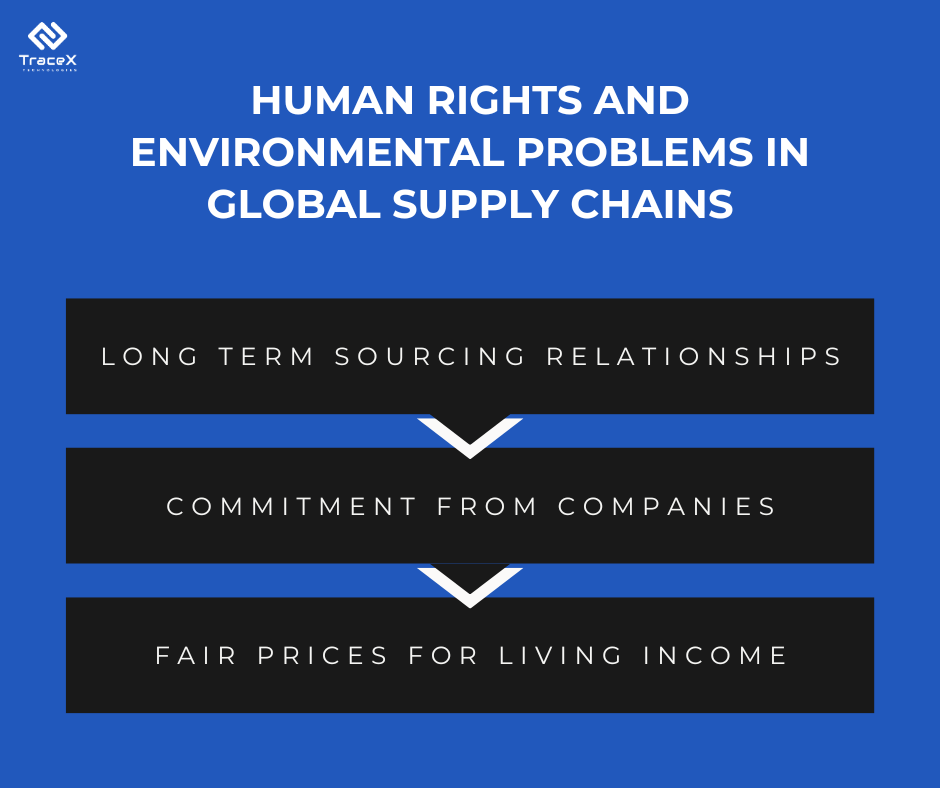Contact: +91 99725 24322 |
Menu
Menu
Quick summary: Explore the transformative impact of fair trade practices in fragrance oil supply chains. Discover how ethical sourcing enhances sustainability, supports communities, and elevates brand integrity. Dive into our blog for insights on the positive changes driven by fair trade initiatives

Fair Trade practices have emerged as a transformative force in the fragrance oil supply chains, reshaping traditional models with principles of equity, transparency, and sustainability. As consumers increasingly prioritize ethical sourcing and social responsibility, the impact of Fair Trade extends beyond economic transactions to encompass environmental stewardship and social justice.
According to Statista, 87% of consumers will buy products with a social environmental benefit.
The Plant-Based Fragrance Oil Market represents a rapidly expanding sector within the fragrance industry, characterized by the use of botanical sources to produce aromatic compounds. These oils, extracted from plants, offer a sustainable and environmentally friendly alternative to conventional synthetic fragrances. Valued for their natural and often therapeutic properties, plant-based fragrance oils appeal to consumers who prioritize clean and eco-friendly beauty products. Crafted with meticulous care to capture the essence of various botanicals, these oils offer a diverse array of scents that cater to the growing demand for natural and organic fragrances. As consumers increasingly prioritize environmental sustainability and healthier lifestyle choices, the Plant-Based Fragrance Oil Market is poised at the forefront, reflecting the global trend towards sustainable and ethical consumer preferences.
The supply chain of essential oils is a complex and intricate network that spans across the globe, from remote farms and plantations to high-tech extraction facilities and distribution centres. Essential oils are derived from various botanical sources, each with its unique cultivation, harvesting, and extraction processes. The journey of essential oils begins with the careful cultivation of aromatic plants, often in regions renowned for their biodiversity and natural resources.
Once harvested, the plant material undergoes meticulous extraction methods, such as steam distillation or cold pressing, to extract the precious oils. From there, the essential oils are carefully packaged and transported to distribution hubs, where they are distributed to manufacturers, retailers, and consumers worldwide. Throughout this supply chain, ensuring quality, purity, and sustainability is paramount, with adherence to ethical sourcing practices and environmental stewardship principles. Collaboration between farmers, producers, and distributors is essential to maintain the integrity of the essential oils supply chain and deliver high-quality products to consumers.
Uncover the intricate journey from blossom to bottle,
Traceability ensures transparency and authenticity.
Fair trade practices in supply chains represent a commitment to ethical and equitable trade, aiming to empower marginalized producers, promote sustainable livelihoods, and foster social and environmental responsibility. These practices prioritize fair wages, safe working conditions, and community development initiatives, ensuring that producers receive a fair share of the value generated throughout the supply chain.
Fairtrade organizations across over 30 nations collaborate with consumers, businesses, and governments to bolster commitments to sustainable production and consumption.
Fair trade certification programs provide assurance to consumers that products have been sourced ethically and sustainably, with transparent and traceable supply chains. By supporting fair trade practices, businesses and consumers contribute to positive social impact, environmental conservation, and economic development in communities around the world. Fair trade principles align with the growing demand for ethical and sustainable products, driving transformational change in global supply chains towards a more equitable and responsible future.
The opaque nature of sourcing techniques in fragrance oil supply chains frequently creates doubt about the origins and methods used in manufacture.
Many fragrance oil supply chains entail labour exploitation, with workers, particularly in developing nations, subjected to terrible working conditions and low wages.
Unsustainable agricultural methods, deforestation, and chemical-intensive growing practices all represent substantial risks to the environmental sustainability of fragrance oil supply chains.
Expanding fair trade principles to reach more producers and consumers necessitates greater knowledge and support. Fair trade organisations can work with governments, non-governmental organisations (NGOs), and industry groups to promote fair trade regulations, provide producer training and resources, and educate consumers. Transparency in the supply chain is vital for upholding fair trade practices. Implementing traceability systems, certifications, and audits can help to verify that fair trade standards are followed at all stages of the essential oil supply chain. Blockchain technology can help improve transparency by providing real-time data on product origins and manufacturing processes.
Ready to dive into the world of responsible business practices?
Explore how businesses are navigating ethical sourcing and transparency in today’s supply chains.

Technology solutions play a crucial role in addressing fair trade challenges in the fragrance market by enhancing transparency, traceability, and accountability throughout the supply chain. These solutions utilize various digital tools such as blockchain, IoT (Internet of Things), and data analytics to provide real-time visibility into the production processes, from sourcing raw materials to the final product.
TraceX offers blockchain traceability solutions that revolutionize supply chain transparency and accountability. Leveraging blockchain technology, TraceX provides a secure and immutable record of every step in the supply chain, from sourcing raw materials to delivering the final product. Through this innovative platform, companies can track and trace the journey of their products in real-time, ensuring compliance with fair trade standards, ethical sourcing practices, and environmental regulations. By digitizing and decentralizing supply chain data, TraceX enhances trust and transparency among stakeholders, fostering a culture of responsibility and sustainability. With TraceX blockchain traceability solutions, companies can confidently demonstrate their commitment to ethical business practices while meeting the growing demands of socially-conscious consumers.
Finally, fair trade methods play an important role in changing fragrance oil supply chains into ethical, sustainable, and equitable structures. Fair trade efforts support the concepts of justice, openness, and sustainability by tackling issues such as exploitative labour practices, a lack of transparency, and environmental destruction. Fair trade provides numerous benefits, including assuring fair wages, promoting sustainable farming methods, supporting community development, and empowering marginalised people.
These benefits go beyond economic gain to include social empowerment, improved livelihoods, and environmental conservation. Fair trade empowers producers and communities, promotes social cohesiveness, and strengthens resilience to socioeconomic problems. Furthermore, fair trade programmes help to promote environmental sustainability by pushing for eco-friendly farming practices, biodiversity preservation, and carbon emission reduction.
Adopting fair trade practices in fragrance oil supply chains is not just a moral responsibility, but also a strategic investment in creating robust, accountable, and future-ready systems. Fair trade opens the way for a fragrance business that values both people and the environment by focusing on ethical sourcing, equitable collaborations, and sustainable production. Finally, incorporating fair trade standards promotes constructive transformation, encourages inclusive growth, and secures a bright future for all stakeholders.
